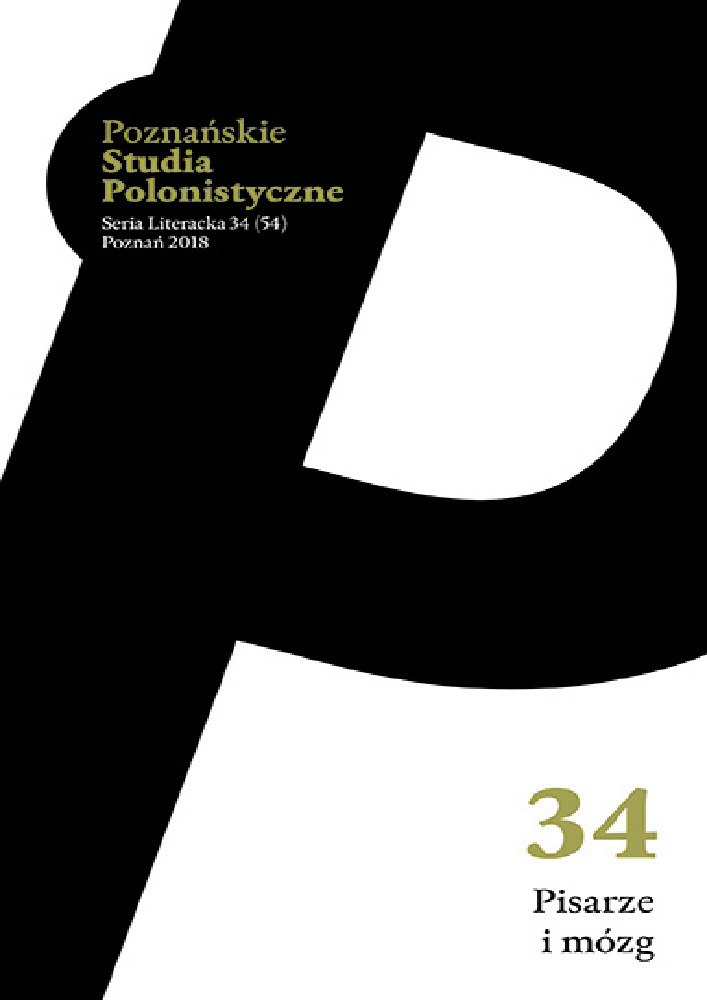Abstract
The subject of the translated article is irony understood as one of the formativeelements of human speech. The author discusses the etymology of this idea, referring primarily to its definition formulated by Socrates, showingits relations with sarcasm, cynicism, meiosis and hyperbole. In terms of content, irony also has a moral element, since it is a challenge to traditional ideas, beliefs or shared cultural references. Irony is also a stylistic convention of poetics, helping to portray in literature what is paradoxical and ambiguous.
References
I Zitat und 3 Gedichte des Autors Johannes Theodor Baargeld (2018),[online], [dostęp: 1 lipca 2018], https://www.aphorismen.de/suche?f_autor=11196_Johannes+Theodor+Baargeld.
Artmann Hans Carl (2003), Auf Todt & Leben. Eine barocke Blütenlese, Herausgegeben von Klaus G. Renner, Manesse Verlag, Zürich [Szwajcaria].
Brecht Bertolt (1988), Gedichte. 2, Sammlungen 1938-1956, oprac. Hecht Werner, Suhrkamp, Berlin [Niemcy].
Brodskij Josif (1993), Dwadzieścia sonetów do Marii Stuart, przeł. Feliks Netz, Wydawnictwo Śląskie, Katowice.
Enzensberger Hans Magnus (1999), Geisterstimmen. Übersetzungen und Imitationen, Suhrkamp Verlag, Frankfurt am Main [Niemcy].
Eviatar Zohar, Just Marcel Adam (2006), Brain correlates of discourse processing: an fMRI investigation of irony and conventional metaphor comprehension, „Neuropsychologia”, nr 44 (12), s. 2348-2359.
Freud Sigmund (1992), Der Witz und seine Beziehung zum Unbewußten, Fischer Taschenbuch-Verlag, Frankfurt am Main [Niemcy].
Gibbs Raymond (1994), The Poetics Mind – Figurative Thought, Language and Understanding, Cambridge University Press, Cambridge [Wielka Brytania].
Goel Vinod, Dolan Raymond J. (2001), The functional anatomy of humor: segregating cognitive and affective components, „Nature Neuroscience”, nr 4 (3), s. 237-238.
Hulme John (1990), De Inventione Cantus volx. Poetische Grundlagentexte aus der dekonstruktivistischen Frühgeschichte der deutsch-französischen Cohabitation, Ekkehard Faude Verlag, Konstanz [Niemcy].
Lipps Theodor (1898), Komik und Humor: Eine psychologisch-ästhetische Untersuchung, L. Voss, Hamburg [Niemcy].
Pexman Penny, Glenwright Melanie (2007), How do typically developing children grasp the meaning of verbal irony?, „Journal of Neurolinguistics”, nr 20 (2), s. 178-196.
Schrott Raoul, Jakobs Arthur (2011), Ironie, Meiosis und Hyperbel, w: Gehirn und Gedicht. Wie wir unsere Wirklichkeiten konstruieren, Carl Hanser Verlag, München [Niemcy], s. 467-481.
Shamay-Tsoory Simone G., Tomer Rachel, Aharon-Peretz Judith (2005),The neuroanatomical basis of understanding sarcasm and its relationship to social cognition, „Neuropsychology”, nr 9 (3), s.288-300.
Sperber Dan, Wilson Deirdre (1995), Relevance: Communication and Cognition, Blackwell Publishers, Oxford [Wielka Brytania].
Wild Barbara (2010), Humor und Gehirn. Neurobiologische Aspekte, „Zeitschrift für Gerontologie und Geriatrie”, nr 43 (1), s. 31-35.
Winner Ellen (1988), The point of words: children’s understanding of metaphor and irony, Harvard University Press, Cambridge MA [USA].
License
Authors
Authors of texts accepted for publication in „Poznańskie Studia Polonistyczne. Seria Literacka” are required to complete, sign and return to the editor's office the Agreement for granting a royalty-free license to works with a commitment to grant a CC sub-license.
Under the agreement, the authors of texts published in „Poznańskie Studia Polonistyczne. Seria Literacka” grant the Adam Mickiewicz University in Poznań a non-exclusive, royalty-free license and authorize the use of Attribution-NoDerivatives 4.0 International (CC BY-ND 4.0)Creative Commons sub-license.
The authors retain the right to continue the free disposal of the work.
Users
Interested Internet users are entitled to use works published in „Poznańskie Studia Polonistyczne. Seria Literacka” since 2016, for non-commercial purposes only, under the following conditions:
- attribution - obligation to provide, together with the distributed work, information about the authorship, title, source (link to the original work, DOI) and the license itself.
- no derivatives - the work must be preserved in its original form, without the author's consent it is not possible to distribute the modified work, such as translations, publications, etc.
Copyrights are reserved for all texts published before 2016.
Miscellaneous
Adam Mickiewicz University in Poznań retains the right to magazines as a whole (layout, graphic form, title, cover design, logo etc.).
